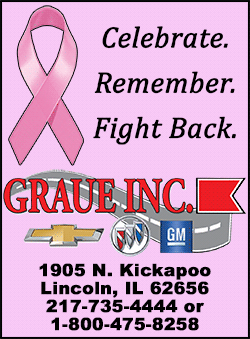|
 Genetic testing can be used in many ways, but here
weíll focus on how it is used to look for gene changes that are
linked to cancer. Genetic testing can be used in many ways, but here
weíll focus on how it is used to look for gene changes that are
linked to cancer.
Genetic testing to help evaluate cancer risk
Predictive genetic testing is a type of testing used to look for
inherited gene mutations that might put a person at higher risk of
getting certain kinds of cancer. This type of testing might be
suggested for:
A person with a strong family history of certain types of cancer, to
see if they carry a gene mutation that increases their risk. If they
do have an inherited mutation, they might want to have screening
tests to look for cancer early, or even take steps to try to lower
their risk. An example is testing for changes in the BRCA1 and BRCA2
genes (which are known to increase the risk of breast cancer and
some other cancers) in people with several family members who have
had breast cancer.
A person already diagnosed with cancer, especially if there are
other factors to suggest the cancer might have been caused by an
inherited mutation (such as a strong family history, if the cancer
was diagnosed at a young age, or if the cancer is uncommon, such as
breast cancer in a man). Genetic testing might show if the person
has a higher risk of developing some other cancers. It can also help
other family members decide if they want to be tested for the
mutation.
Family members of a person known to have an inherited gene mutation
that increases their risk of cancer. Testing can help them know if
they need screening tests to look for cancer early, or if they
should take steps to try to lower their risk.

Most people (even people with cancer) do not need this type of
genetic testing. Itís usually done when family history suggests that
a cancer may be inherited (see below) or if cancer is diagnosed at
an uncommonly young age.
Who might benefit from genetic testing?
Genetic counseling and testing may be recommended for people who
have had certain cancers or certain patterns of cancer in their
family. If you have any of the following, you might consider talking
to a genetic counselor about genetic testing:
-
Several first-degree
relatives (mother, father, sisters, brothers, children) with
cancer
-
Many relatives on one
side of the family who have had the same type of cancer
-
A cluster of cancers
in your family that are known to be linked to a single gene
mutation (such as breast, ovarian, and pancreatic cancers, which
are sometimes linked to BRCA gene mutations)
-
A family member with
more than 1 type of cancer
-
Family members who had
cancer at a younger age than normal for that type of cancer
-
Close relatives with
cancers that are linked to rare hereditary cancer syndromes
-
A rare cancer (in you
or a family member), such as breast cancer in a man or
retinoblastoma
-
A particular race or
ethnicity (such as Ashkenazi Jewish ancestry, which is linked to
a higher risk of BRCA gene mutations)
-
A physical finding
thatís linked to an inherited cancer (such as having many colon
polyps)
-
A known genetic
mutation in one or more family members who have already had
genetic testing
-
Lab tests of your
cancer cells that show features that might be linked to an
inherited gene mutation
If you are concerned about a pattern of cancer in
your family, cancer youíve had in the past, or other cancer risk
factors, you may want to talk to a health care provider about
whether genetic counseling and testing might be a good option for
you.

You need to know your family history and what kinds of tests are
available. For some types of cancer, no known mutations have been
linked to an increased risk.
For more information on the types of cancer that may be linked to
inherited genes, see
Family Cancer Syndromes.
[to top of second column] |

What is genetic counseling?
Genetic counseling gives you information that you and your family
can use to make decisions about whether to get genetic testing.
Genetic counselors have special training in the field of genetic
counseling. Most are board-certified, and some might have a license
depending on the rules in their state. Some doctors, advanced
practice oncology nurses, social workers, and other health
professionals may also provide genetic counseling, although they
might have different levels of training in this field. If you are
offered genetic counseling, itís fair to ask about their training in
this area.
Before and after genetic testing, genetic counseling can help you
understand what your test results might mean, your risk of
developing cancer, and what you can do about this risk. It is your
decision to have testing and what steps you take after.
Before you get tested...
Itís important to find out how useful genetic testing might be for
you before you do it. Talk to your health care provider and plan on
getting genetic counseling before the actual test. This will help
you know what to expect. Your counselor can also tell you about the
risks and benefits of the test, what the results might mean, and
what your options are.
Your health care provider can refer you to a genetic counselor in
your area, or you can find a list of certified genetic counselors on
the website of the National Society of Genetic Counselors.
To learn more, see
What Should I Know Before Getting Genetic Testing?
Other types of genetic tests
Testing cancer cells for gene changes
Sometimes after a person has been diagnosed with cancer, the doctor
will order tests on a sample of cancer cells to look for certain
gene or protein changes. These tests can sometimes give information
on a personís outlook (prognosis), and they might also help tell if
certain types of treatment may be useful.
These types of tests look for acquired gene changes only in the
cancer cells. These tests are not the same as the tests used to find
out about inherited cancer risk.
For more about this kind of testing and its use in cancer treatment,
see
Biomarker Tests and Cancer Treatment.

Home-based genetic tests
Some tests that look for gene changes can be bought without needing
a doctorís order. For this type of testing, you purchase a test kit
and send a sample of your DNA (often from saliva) to a lab for
testing.
If you are considering using a home-based genetic test (also known
as a direct-to-consumer genetic test), you need to know what itís
testing for, what it can (and canít) tell you, and how reliable the
test is.
Home-based tests do not provide information on a personís overall
risk of developing any type of cancer. Sometimes these tests can
sound much more helpful and certain than they have been proven to
be. It may sound like the test will provide an answer to your
specific health concern, such as your risk of hereditary cancer, but
the test may not be able to answer that question completely. For
example, a test may look for mutations in a certain gene, but it
might not test for all of the possible mutations. So a negative test
result, even if accurate, may miss the bigger picture regarding your
cancer risk and what you can do to manage it. And you might not be
provided with the important context about the test results that a
genetic counselor could provide.
Home-based genetic tests should not be used instead of cancer
screening or genetic counseling that may be recommended by a medical
professional based on your individual risk for cancer. Always
consult with your doctor if you are considering or have questions
about genetic testing. Trained genetic counselors can help you know
what to expect from your test results.
[The American Cancer Society
medical and editorial content team] |